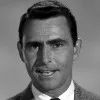There is a bitter sadness and special irony that attends the passing of Martin Luther King. Quickly and with ease, we offer up a chorus of posthumous praise — the ritual dirge so time-honored and comfortable and undemanding of anything but rhetoric. In death, we offer the acknowledgement of the man and his dream that we denied him in life.
In his grave, we praise him for his decency — but when he walked amongst us, we responded with no decency of our own. When he suggested that all men should have a place in the sun — we put a special sanctity on the right of ownership and the privilege of prejudice by maintaining that to deny homes to Negroes was a democratic right.
Now we acknowledge his compassion — but we exercised no compassion of our own. When he asked us to understand that men take to the streets out of anguish and hopelessness and a vision of that dream dying, we bought guns and speculated about roving agitators and subversive conspiracies and demanded law and order.
We felt anger at the effects, but did little to acknowledge the causes. We extol all the virtues of the man — but we chose not to call them virtues before his death. And now, belatedly, we talk of this man’s worth — but the judgment comes late in the day as part of a eulogy when it should have been made a matter of record while he existed as a living force.
Rod Serling (1924-1975) American screenwriter, playwright, television producer, narrator
Letter to the Editor, Los Angeles Times (8 Apr 1968)
(Source)
Quoted in Anne Serling, As I Knew Him: My Dad, Rod Serling (2013).
Quotations about:
eulogy
Note not all quotations have been tagged, so Search may find additional quotes on this topic.
The only guide to a man is his conscience, the only shield to his memory is the rectitude and the sincerity of his actions. It is very imprudent to walk through life without this shield, because we are so often mocked by the failure of our hopes and the upsetting of our calculations; but with this shield, however the fates may play, we march always in the ranks of honour.
Carve not upon a stone when I am dead,
The praises which remorseful mourners give
To women’s graves — a tardy recompense,
But speak them while I live.
Why should we fear that which will come to all that is? We cannot tell, we do not know, which is the greater blessing — life or death. We do not know whether the grave is the end of this life, or the door of another, or whether the night here is not somewhere else at dawn. Neither can we tell which is the more fortunate — the child dying in its mother’s arms, before its lips have learned to form a word, or he who journeys all the length of life’s uneven road, painfully taking the last slow steps with staff and crutch.
Robert Green Ingersoll (1833-1899) American lawyer, agnostic, orator
Speech (1882-01-08), “At a Child’s Grave,” Congressional Cemetery, Washington, D. C.
(Source)
Eulogy at the burial of Harry Miller.
The dead do not suffer. And if they live again, their lives will surely be as good as ours. We have no fear. We are all children of the same mother, and the same fate awaits us all. We, too, have our religion, and it is this: Help for the living, Hope for the dead.
Robert Green Ingersoll (1833-1899) American lawyer, agnostic, orator
Speech (1882-01-08), “At a Child’s Grave,” Congressional Cemetery, Washington, D. C.
(Source)
Eulogy at the burial of Harry Miller.




